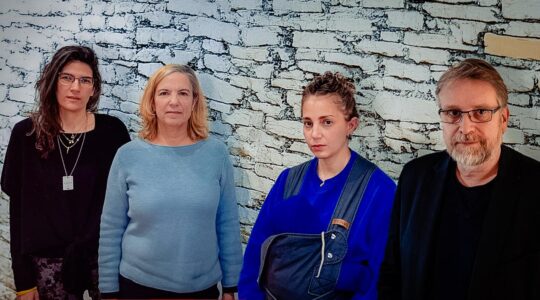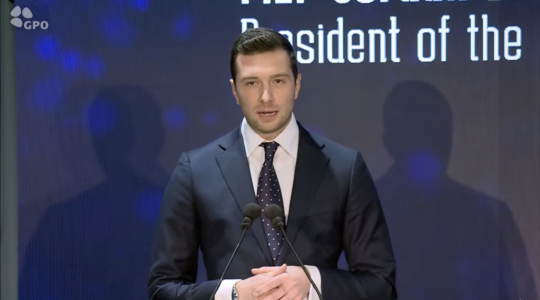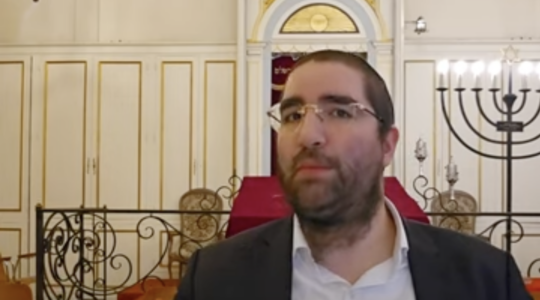No one told me that today was the day to turn back your clocks in Europe.
That’s why I’m currently sitting in a Caffe Nero near London’s Hammersmith tube stop in the southwest of the city, shamelessly abusing free WiFi and killing time before hopping an express train to Gatwick for my flight to Ukraine.
I’m heading to Odessa today, Ukraine’s fourth-largest city and a cultural jewel on the Black Sea, to cover the city’s second Limmud conference. Last year’s event attracted about 500 young Russian-speaking Jews.
As I’ve traveled through Europe, I’ve heard only the best things about the Limmud program, a workshop-based educational model that started in the United Kingdom in 1980 and has been operating in the former Soviet Union since 2006.
But I haven’t seen it in action — that’s why I’m so excited for this trip to Odessa, which will incidentally also reunite me with some friends I made at the European Union of Jewish Students‘ Summer U event back in Greece in August.
[[READMORE]]
That’s not the only reason I’m headed to Odessa. I’ll also be writing a story on the Tikva Children’s Home, a facility that cares for the city’s "homeless, abandoned and abused" Jewish kids. So much of what I write about is theoretical, so I’m excited to have the chance to interact with a real program catering to a very tangible need.
After genteel, cosmopolitan London, I imagine my foray into Eastern Europe will be a bit of a culture shock, but Odessa, with more than one million residents, shouldn’t feel too different from other cities I’ve recently visited — like Moscow, St. Petersburg, Belgrade and Vilnius.
What might really shake me out of my European city routine will be my visit to Tiraspol, the capital city of Transnistria, the separatist region of Moldova sandwiched in between that country and the Ukrainian border.
Limmud concludes November 2, but I’m not flying back to London until November 4 — and not from Odessa, but from Chisinau, Moldova’s capital city. I’m hoping to get the chance to visit with Transnistria’s small Jewish community and figure out the logistics of Jewish life in a country that … frankly, does not exist.
Stay tuned for updates. This should be an exciting trip.
JTA has documented Jewish history in real-time for over a century. Keep our journalism strong by joining us in supporting independent, award-winning reporting.





